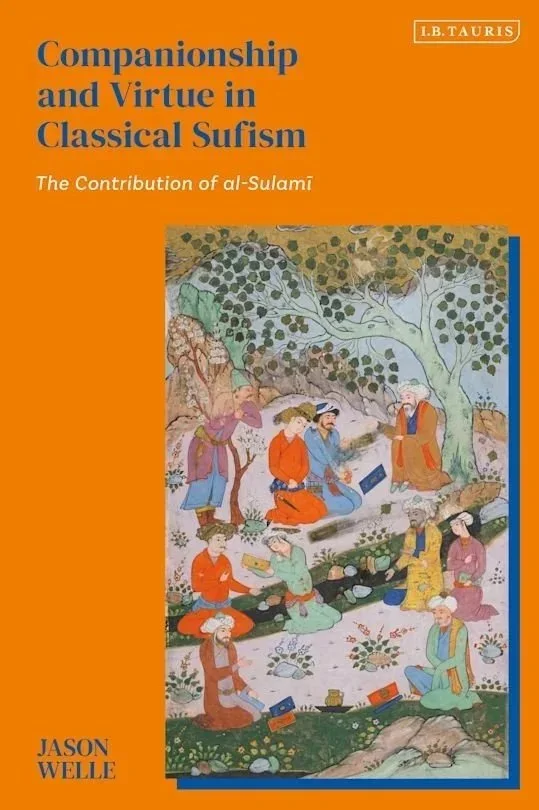2025 Winning Titles
WINNING TITLE
PROPHET OF REASON: SCIENCE, RELIGION AND THE ORIGINS OF THE MODERN MIDDLE EAST
BY
PETER HILL
ONEWORLD
Our reviewer comments:
“Hill provides a masterly account of the life and times of the polymath, merchant, and diplomatic go-between Mikhail Mishaqa, from his birth in Mount Lebanon in 1800 and his early years in his native region and Egypt, to his move to Damascus and conversion to Protestantism. Hill draws throughout on an impressively wide range of archival and printed documents, some of them dauntingly complex, from collections across Europe, North America, and the Middle East.”
“…from the off, Hill situates Mishaqa within his various social, political, intellectual and religious contexts. Drawing upon a wide swathe of literatures, ranging from scholarship on the Arab Nahda or ‘awakening’ of the 19th century, to work on missionary Christianity in the Middle East and the history of both Western and Middle Eastern science and medicine, Hill makes clear the stakes of this narrative for both a scholarly and general audience. He does so in an elegant, writerly prose, which marries vivid detail with lucid exposition of sometimes complex and arcane material.”
“All in all, this is a deeply impressive work which marries penetrating, original insights and vivid, evocative prose. It is at once a significant intervention in the scholarship, and an important contribution to public understanding of the Middle East.”
Runner up Titles
toiling for oil: a social history of petroleum in iran
by touraj atabaki
cambridge UNIVERSITY PRESS
Our reviewer comments:
“This book is undoubtedly a labour of love. Its author has worked for many years on the working class and labour movements in the Iranian oil industry, in many ways pioneering this field of study alongside some of his former students (some mentioned in text) who have conducted seminal work on the topic.”
“What is perhaps the original feature of the work is its treatment of the period post-1953 which has received relative scant attention in the academic literature, particularly the 1960s and the run up to the Islamic Revolution of 1978/9 with which the book ends. Further, the book provides a cogent discussion of the historiography of Iran’s political and labour history in the last 100 years or so.”
“… a great teaching tool and for the general public (particularly in the light of current Israel/Iran hostilities).”
companionship and virtue in classical sufism: the contribution of al-sulami
BY jason welle
ib tauris
Our reviewer comments:
“Reading Companionship and virtue was as much about moving from eleventh-century Khurasan to modern philosophy as using the categories of modern philosophy to make sense of what Sulamī was up to. For less specialized readers, the usual movement will presumably be in the opposite direction, from present-day philosophy in Europe and North America to eleventh-century Khurasan. In either case, one leaves Welle’s study feeling enlightened.”
“Welle writes clearly. He is also notably modest and respectful toward other writers in his field (even to excess, I would say). There is none of the strident insistence on the originality of the present study or the erroneousness of previous studies that disfigure many dissertations and first books. In sum: this is a splendid piece of original scholarship and strong evidence in favour of an argument that medieval treatises on the good life have things to tell us at both basic and fairly rarefied levels.”
SHORTLISTED TITLES:
making and remaking empire in early qajar iran
by assef ashraf
Cambridge UNIVERSITY PRESS
Our reviewer comments:
“Ashraf’s study transcends the stale binary of ruler and ruled and revisits the much maligned Qajars with a fresh, unbiased perspective. Rejecting a top-down view of Iranian history, Ashraf deliberately moves beyond conventional political history to offer us a sociologically and anthropologically informed reading of the human relations and codes of behaviour that, he convincingly argues, stood at the core of early Qajar governance.”
“I have no doubt that this is a ground-breaking book will reshape how historians research and teach nineteenth-century Iran for many years to come.”
the damascus events: the 1860 massacre and the destruction of the old ottoman world
BY eugene rogan
Allen Lane
Our reviewer comments:
“The great merit of The Damascus Events is to (re-introduce) readers to a defining moment in the history of the modern Middle East: the mid-nineteenth century massacres of Greater Syria’s Christian population, first in Mount Lebanon, then in Damascus. Eugene Rogan is able to tell this story in a riveting prose that is accessible to a wide audience without sacrificing any of the nuances of these historical events - which is no small achievement considering the sheer number of protagonists, political factions, ethnic and religious groups, as well as towns, villages, and cities involved in the story. The book reads extremely well, it keeps the reader fully engaged thanks to a very clear and balanced style of writing.”
“The book reads like a novel thanks to Rogan’s talents as a writer, yet it is based on meticulous archival work and careful engagement with existing scholarship.”


